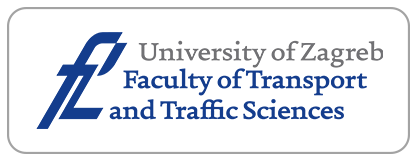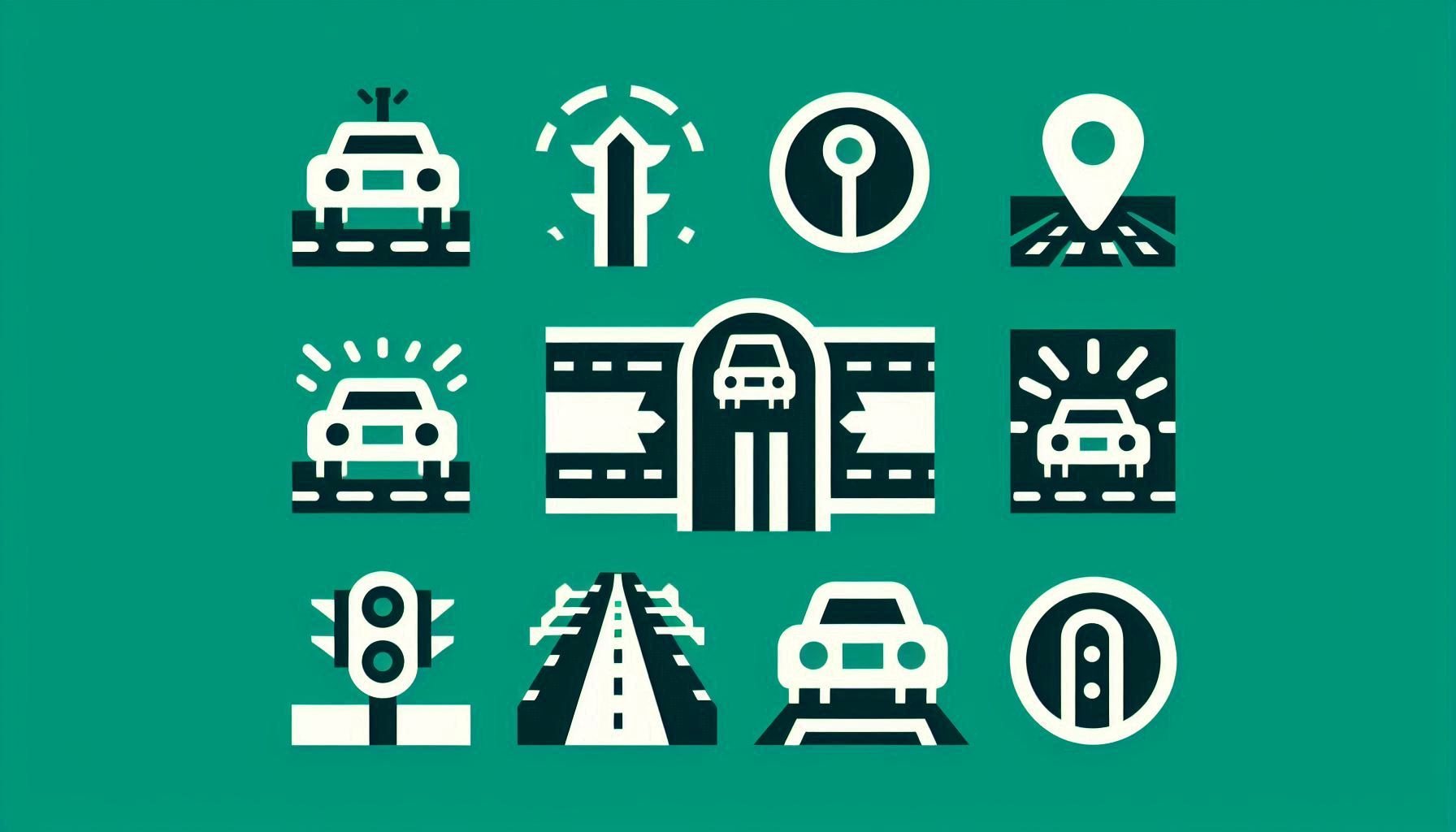Timetable Synchronisation for the First Trains in the Day According to Actual Transfer Times

Downloads
Non-synchronised timetables of the first hour trains can lead to longer waiting times for passengers wishing to transfer at the transfer station. This study aims to reduce the waiting time of passengers by synchronising the timetables of first hour trains using actual transfer times. The transfer times of the passengers are obtained from the observations and are used in this synchronisation study. The genetic and simulated annealing algorithms are implemented to solve the first train synchronisation model. Finally, a case study is conducted on a section of the Istanbul metro network to test the synchronisation model. The results show that the total waiting time of the first hour trains transfer passengers is reduced by 35% by applying the proposed model. Another result of the study shows that using the actual transfer time instead of the average transfer time of the passengers reduces the average waiting time of the passengers by 19%.
Downloads
Yang X, et al. A Survey on energy-efficient train operation for urban rail transit. IEEE Transactions on Intelligent Transportation Systems. 2015;17:2-13. DOI: 10.1109/TITS.2015.2447507.
Wong RC, Leung JM. Timetable synchronization for mass transit railway. Transportation Science. 2004;42(1):57-69. DOI: 10.1287/trsc.1070.020.
Van Oort N. Service reliability and urban public transport design. Delft University of Technology; 2011.
Metro Istanbul. Passenger Statistics. 2023.
Wu J, et al. Equity-based timetable synchronization optimization in urban subway network. Transportation Research Part C. 2015;51:1-18. DOI: 10.1016/j.trc.2014.11.001.
Chang SC, Chung YC. From timetabling to train regulation - A new train operation model. Information and Software Technology. 2005;47(9):575-585. DOI: 10.1016/j.infsof.2004.10.008.
Niu H, Zhou X. Optimizing urban rail timetable under time-dependent demand and oversaturated conditions. Transportation Research Part C. 2013;36(16):212-130. DOI: 10.1016/j.trc.2013.08.016.
Shang P, Li R, Yang L. Optimization of urban single-line metro timetable for total passenger travel time under dynamic passenger demand. Procedia Engineering. 2016;137:151-160.
Domschke W. Schedule synchronization for public transit networks. Operations Res. Spektrum. 1989;11:17-24.
Nachtigallt K, Voget S. A genetic algorithm approach to periodic railway synchronization. Computers Ops. Res. 1996;23(5):453-463. DOI: 10.1016/0305-0548(95)00032-1.
Guo X, et al. Multiperiod-based timetable optimization for metro transit networks. Transportation Research Part B. 2016;96:46-67. DOI: 10.1016/j.trb.2016.11.005.
Tian X, Niu H. A bi-objective model with sequential search algorithm for optimizing network-wide train timetables. Computers & Industrial Engineering. 2019;127:1259-1272. DOI: 10.1016/j.cie.2018.03.012.
Abdolmaleki M, Masoud N, Yin Y. Transit timetable synchronization for transfer time minimization. Transportation Research Part B. 2020;131:143-159. DOI: 10.1016/j.trb.2019.12.002.
Meng X, Jia L, Xiang W. Petri net model of train operation simulation for harmonizing train timetables of neighbor dispatching sections. Promet – Traffic&Transportation. 2018;30(6):647-660. DOI: 10.7307/ptt.v30i6.2713.
Kang L, Zhu X. A simulated annealing algorithm for first train transfer problem in urban railway networks. Applied Mathematical Modelling. 2016;40(1):419-435. DOI: 10.1016/j.apm.2015.05.008.
Kang L, et al. Modeling the first train timetabling problem with minimal missed trains and synchronization time differences in subway networks. Transportation Research Part B. 2016;93:17-36. DOI: 10.1016/j.trb.2016.07.006.
Guo X, et al. Timetable coordination of first trains in urban railway network: A case study of Beijing. Applied Mathematical Modelling. 2016;40(17-18):8048-8066. DOI: 10.1016/j.apm.2016.04.004.
Li X, et al. Timetable coordination of the first trains for subway network with maximum passenger perceived transfer quality. IEEE Access. 2019;7:52042-52051. DOI: 10.1109/ACCESS.2019.2906361.
Guo X, et al. First-train timing synchronisation using multi-objective optimisation in urban transit networks. International Journal of Production Research. 2019;57(11):3522-3537. DOI: 10.1080/00207543.2018.1542177.
Li X, et al. First train timetabling for urban rail transit networks with maximum passenger transfer satisfaction. Sustainability. 2020;12:1-22. DOI: 10.3390/su12104166.
Kang L, et al. First train timetabling and bus service bridging in intermodal bus-and-train transit networks. Transportation Research Part B. 2021;149:443-462. DOI: 10.1016/j.trb.2021.05.011.
Chai H, Tian X, Niu H. First-train timetable synchronization in metro networks under origin-destination demand conditions. Journal of Advanced Transportation. 2022;1-17. DOI: 10.1155/2022/8579354.
Chen Y-Z, et al. First train timetable synchronization with interval trains in subway networks. Transportmetrica B: Transport Dynamics. 2023;11:69-92. DOI: 10.1080/21680566.2022.2038304.
Sato K, Tamura K, Tomii N. A MIP-based timetable rescheduling formulation and algorithm minimizing further inconvenience to passengers. Journal of Rail Transport Planning & Management. 2013;3(3):38-53. DOI: 10.1016/j.jrtpm.2013.10.007.
Chen Y, et al. Optimal coordination of last trains for maximum transfer accessibility with heterogeneous walking time. Journal of Advanced Transportation. 2019:1-13. DOI: 10.1155/2019/9692024.
Huang J, Zhang T, Wei R. Urban railway transit timetable optimisation based on passenger-and-trains matching – A case study of Beijing metro line. Promet – Traffic&Transportation. 2021;33(5):671-687. DOI: 10.7307/ptt.v33i5.3736.
Shen Y, Ren G, Liu Y. Timetable design for minimizing passenger travel time and congestion for a single metro line. Promet – Traffic&Transportation. 2018;30(1):21-33. DOI: 10.7307/ptt.v30i1.2281.
Mo P, et al. A flexible metro train scheduling approach to minimize energy cost and passenger waiting time. Computers & Industrial Engineering. 2019;132:412-432. DOI: 10.1016/j.cie.2019.04.031.
Wang C, et al. An integrated energy-efficient and transfer-accessible model for the last train timetabling problem. Physica A. 2022;588:1-15. DOI: 10.1016/j.physa.2021.126575.
Stoilova S, Stoev V. Methodology of transport scheme selection for metro trains using a combined simulation-optimization model. Promet – Traffic&Transportation. 2017;29(1):23-33. DOI: 10.7307/ptt.v29i1.2139.
Li W, et al. Coordination of last train transfers using automated fare collection (AFC) system data. Journal of Advanced Transportatıon. 2016;50:2209-2225. DOI: 10.1002/atr.1455.
Chen Y, et al. Timetable synchronization of last trains for urban rail networks with maximum accessibility. Transportation Research Part C. 2019;99:110-129. DOI: 10.1016/j.trc.2019.01.003.
Yang S, et al. Last-train timetabling under transfer demand uncertainty: Mean-variance model and heuristic solution. Journal of Advanced Transportation. 2017:1-13. DOI: 10.1155/2017/5095021.
Zhou W, et al. Coordination optimization of the first and last train's departure time on urban rail transit network. Advances in Mechanical Engineering. 2013;5:1-12. DOI: 10.1155/2013/848292.
Friedrich M, Hofsäß I, Wekeck S. Timetable-based transit assignment using branch & bound. Transportation Research Record Journal of the Transportation Research Board. 2001;1752(1):100-107. DOI: 10.3141/1752-14.
D’Ariano A, Pacciarelli D, Pranzo M. A branch and bound algorithm for scheduling trains in a railway network. European Journal of Operational Research. 2007;183(2):643-657. DOI: 10.1016/j.ejor.2006.10.034.
Sels P, et al. Reducing the passenger travel time in practice by the automated construction of a robust railway timetable. Transportation Research Part B. 2016;84:124-156. DOI: 10.1016/j.trb.2015.12.007.
Kang L, et al. Departure time optimization of last trains in subway networks: Mean-variance model and GSA algorithm. Journal of Computing in Civil Engineering. 2014;29(6):1-12. DOI: 10.1061/(ASCE)CP.1943-5487.000040.
Kang L, et al. A practical model for last train rescheduling with train delay in urban railway transit networks. Omega. 2015;50:29-42. DOI: 10.1016/j.omega.2014.07.005.
Kang L, et al. A case study on the coordination of last trains for the Beijing subway network. Transportation Research Part B. 2015;72:112-127. DOI: 10.1016/j.trb.2014.09.003.
Yang Y, Du P. Optimization of the suburban railway train operation plan based on the zonal mode. Traffic Planning. 2020;33(3):1-12. DOI: 10.7307/ptt.v33i3.3608.
Goldberg DE, Holland JH. Genetic algorithms and machine learning. Machine Learning. 1988. DOI: 10.1023/A:1022602019183.
Laarhoven PJM, Aarts EHL. Simulated annealing: Theory and applications. 1987. DOI: 10.1007/978-94-015-7744-1.
Stoilova S, Stoev V, Sisman M. Investigation of the organization of metro lines in Istanbul. Anniversary international Scientifics conference on Aeronautics, Automotive and Railway Engineering and Technologies. Sofia, Bulgaria. 2013.
Copyright (c) 2024 Taha Yüksel, Zübeyde Öztürk

This work is licensed under a Creative Commons Attribution-NonCommercial 4.0 International License.




















